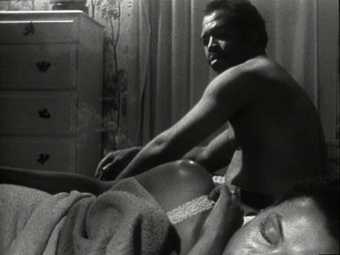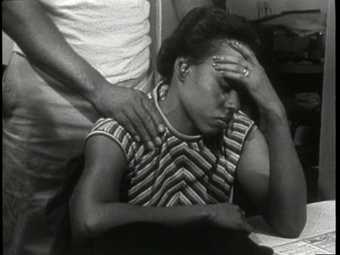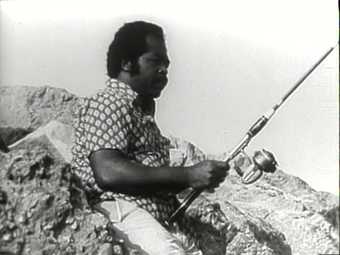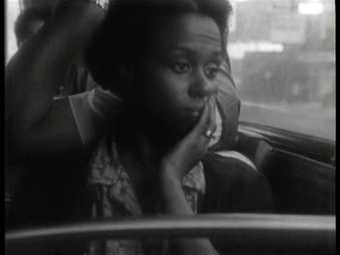Bless Their Little Hearts
Billy Woodberry, USA 1984, 35 mm, b/w, 84 min
Newly restored print courtesy of the UCLA Film & Television Archive
Bless Their Little Hearts is one of the defining films about Los Angeles; an impassioned study of the life and pressures exerted on a married couple in the working class neighbourhood of Watts. The intense performances by Kaycee Moore (who appeared in Charles Burnett’s Killer of Sheep 1977) and Nate Hardman are captured in luminous black and white photography in a series of elegant long takes that chart with rare emotional honesty their struggle to keep their family from falling apart. Made in the same Los Angeles community featured in Killer of Sheep and set just a few years later, the film charts the drastic changes in the community and the effects of the diminishing opportunities for its residents. The result of a remarkable collaboration between its small crew and lead actors, working from an original scenario by Charles Burnett. Woodberry carved out a rigorous work of unparalleled intensity and compassion. In focusing on the material pressures in the relationship, Bless Their Little Hearts is an indictment of the brutal effects of de-industrialisation on entire communities stranded and starved of opportunities in the centre of one of America's largest cities.
The Pocketbook
Billy Woodberry, USA 1980, 35 mm, b/w, 13 min
Newly restored print courtesy of the UCLA Film & Television Archive
Billy Woodberry's earlier short film The Pocketbook 1980 looks at the loneliness of an abandoned child who is forced to confront his situation by an older woman when he attempts to steal her purse. Adapted from the short story Thank You, Ma'am by poet and novelist Langston Hughes. The film's high contrast black and white photography, including mesmerising night scenes, draws on the history of photography as a social practice. Drawing on the legacy of early modernist photographers such as Paul Strand or Helen Levitt (to whom The Pocketbook is dedicated) Woodberry's film works strive to reconnect aesthetics with social reform, baring witness to working class lives all too scarce in the history of cinema.
Introduced by Billy Woodberry and followed by a discussion and Q&A.
Programme duration: 97 min




